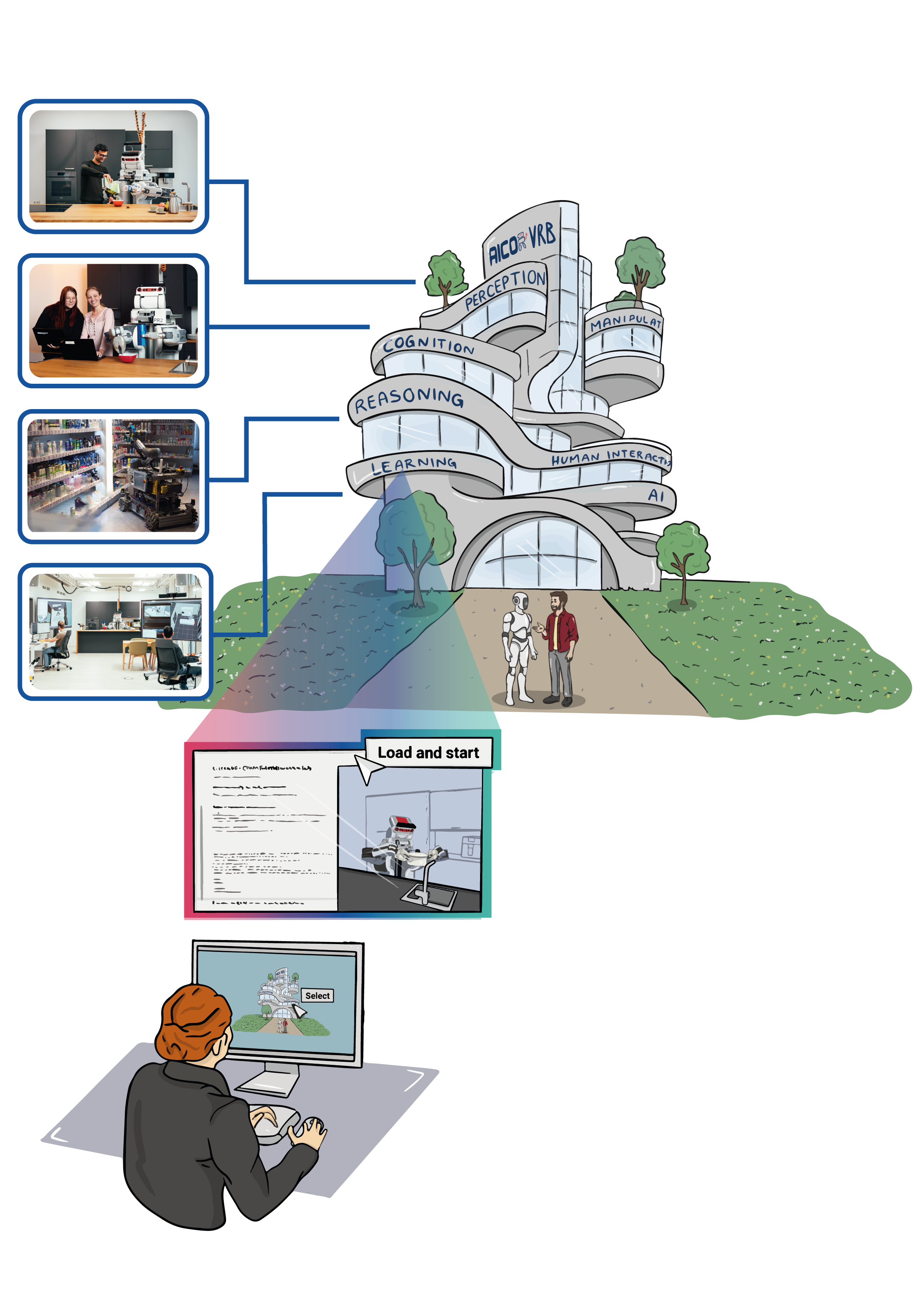AICOR Virtual Research Building (VRB)
Welcome to the AICOR Virtual Research Building (VRB), which aims to be a hub where the future of AI-powered and cognition-enabled robotics unfolds. Inside the AICOR VRB, you can visit our cutting-edge research laboratories including those in development and dedicated to software components. Here innovation meets collaboration pushing the boundaries of research and technology. Engage with the first chapter of our interactive textbook to discover the foundational principles and insights that guide our research, complemented by practical programming exercises in the virtual labs. Explore the seminal work that underpins our functional laboratories offering a glimpse into how we envision the intelligent robots of the future. Join us on this journey to transcend the imaginable today.
The creation of the AICOR VRB is an activity of the Institute for Artificial Intelligence at the University of Bremen. The activity is supported by:
- The Collaborative Research Center EASE (“Everyday Activity Science and Engineering”) funded by the German Science Foundation (DFG);
- The European Network of Excellence Centers in Robotics euROBIN funded by Horizon Europe of the European Commission;
- The ERC Advanced Grant FAME (Future Action Modelling Engine) of the European Research Council;
- The collaborative project InteL4CoRo funded by the BMBF is developing an interactive textbook and immersive learning environment for cognitive robotics.




